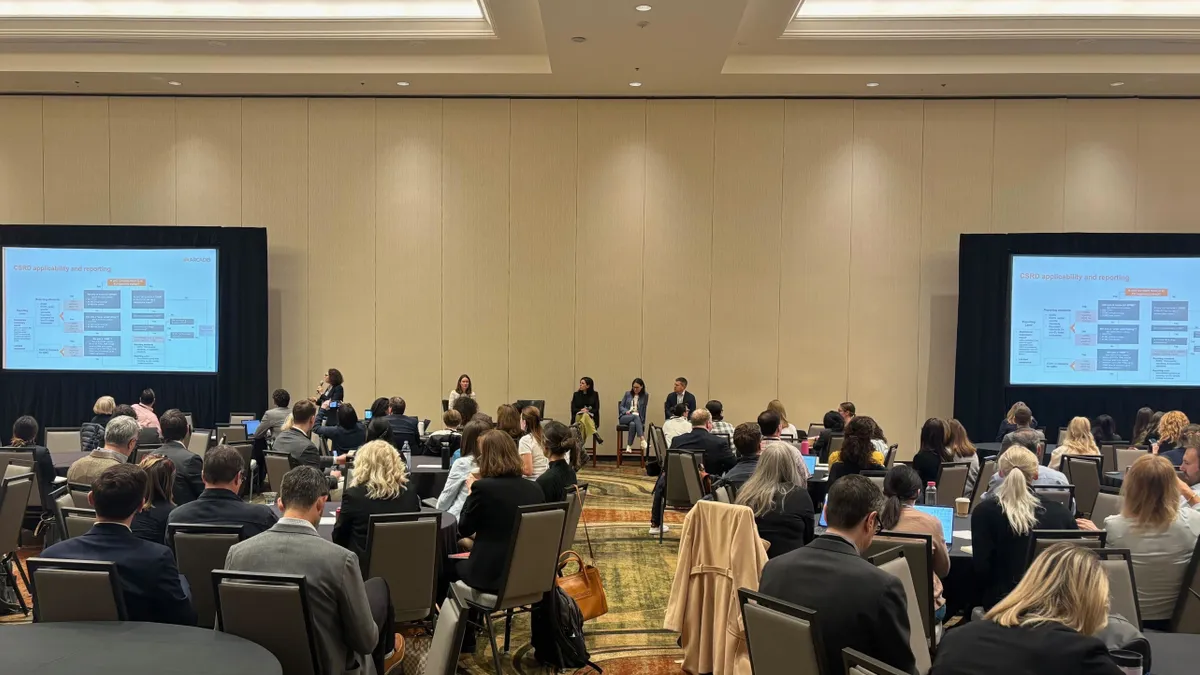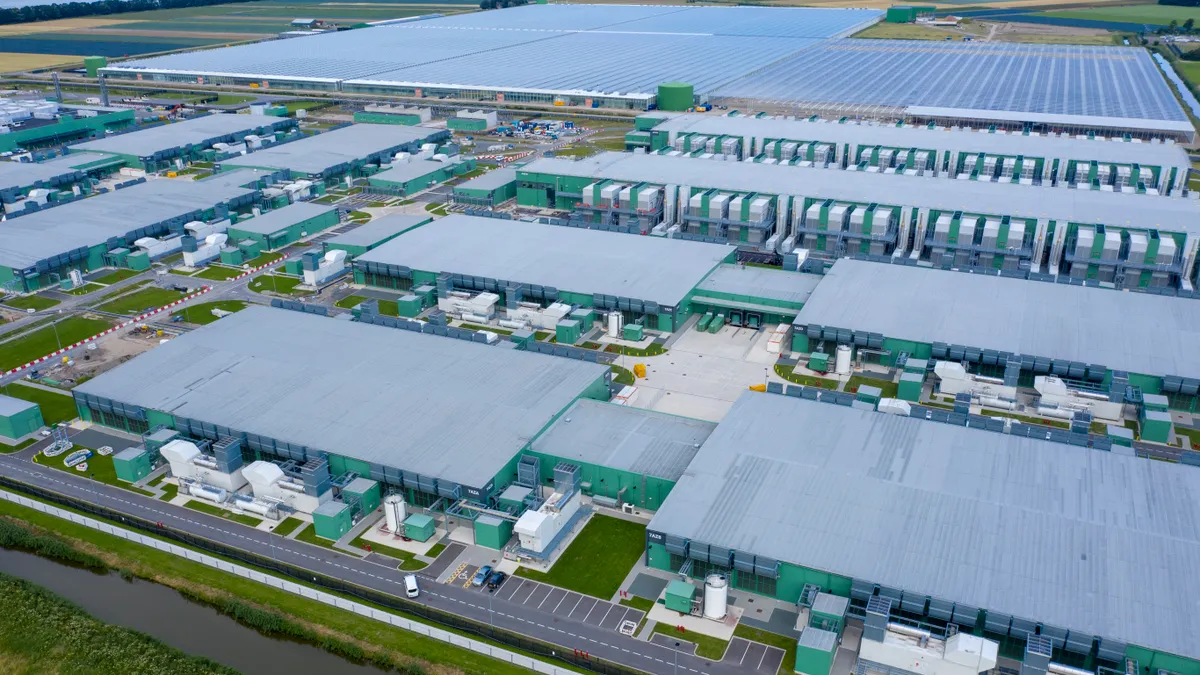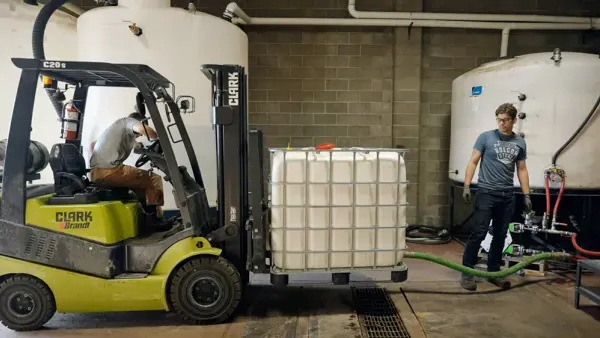Dive Brief:
- Attendees at the Greenbiz24 conference packed a panel on Wednesday to discuss the possible impact of the European Union’s Corporate Sustainability Reporting Directive, effective in January, on North American companies and their preparations.
- Companies headquartered outside of the EU bloc, along with some specific sectors — including oil and gas, mining, road transport and more — have already received a two-year delay on the legislation’s double materiality reporting requirements until June 2026.
- U.S. companies looking to determine how applicable the reporting standards are to them, and when they will have to start reporting, should begin with a thorough understanding of what markets they are regulated in, subsidiaries they have and company size, Michelle Bachir, managing director of Arcadis’ North America sustainability advisory, told the room.
Dive Insight:
PHOENIX — It was standing room only on the last day of the conference as attendees listened intently and snapped pictures of Bachir’s slides. She said an in-depth understanding of a company’s regulatory priorities and corporate structures will enable U.S. companies to determine how soon companies directly subject to the regulation will have to comply.
Companies that are regulated on European markets should begin their assessment right away to determine if they meet the law’s revenue and employee thresholds. Measuring where they are against those thresholds will determine if they must disclosing their activities from this fiscal year as early as 2025 or if their first disclosure will be required in 2026, Bachir said. Smaller companies subject to the law will need to begin reporting in 2027, and other companies that may not be registered on the EU’s markets, but have revenue or subsidiaries in the bloc, could have reporting requirements pushed out as late as 2029.
“This is a very important exercise to start with — with your legal teams, with your finance team — to really understand what you should report, what entities should be reporting, and eventually what are the reporting standards that apply,” Bachir said.
This process, along with taking into account how company actions materially affect the environment and public in addition to its investors, will be complex, Bachir said. Though, “It is important to recognize that we are not starting from scratch,” Nado Saab, Mondelēz International’s director of ESG reporting, said.
Saab said many companies have been reporting on their sustainability programs for years, which have resulted in a “good, strong foundation for ESG practices.” Mondelēz International, the Illinois-based food and beverage company that owns brands like Oreo and Sour Patch Kids, started its process with just the type of collaboration between its sustainability, legal and finance teams that Bachir recommended, Saab told the panel.
Saab called the double materiality aspect of the legislation “one of the biggest, if not the biggest shift” under the CSRD. She said the creation of comparable data on environmental and public impacts will help identify prior information gaps, as Mondelēz is able to tack on the legislation’s requirements to their prior reporting framework.
The requirements will have an added impact of increasing the credibility of ESG and sustainability reporting for investors, Emily Pierce, vice president of global regulatory climate disclosure for carbon accounting platform Persefoni, said Wednesday. Pierce previously spent more than a decade at the Securities and Exchange Commission as an assistant director for International Affairs.
“What regulators have done is recognize that in order to make this information decision-useful for investors — and in the case of Europe, many other stakeholders — it needs to be in a regulated environment,” she said.
The CSRD lays out revenue and employee thresholds for non-EU companies to be required to report. Non-EU entities with more than $160 million (150 million euros) in global revenues will have to report if more than $43.25 million is generated in the EU. Parent companies that meet the same revenue thresholds and have more than 500 employees would also have to report.
Deloitte estimates more than 3,000 companies who will be required to disclose under this legislation.










